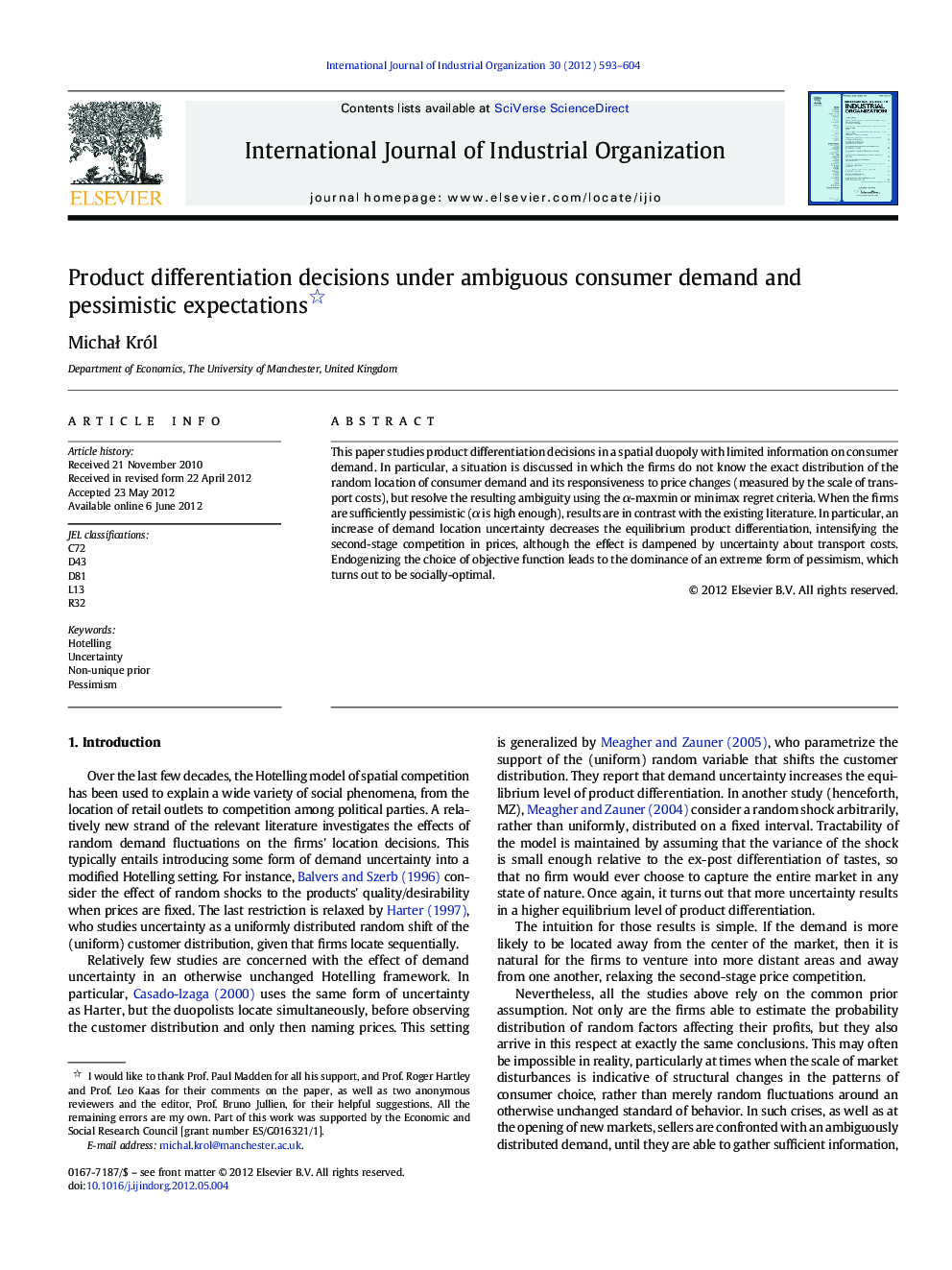| Article ID | Journal | Published Year | Pages | File Type |
|---|---|---|---|---|
| 5078031 | International Journal of Industrial Organization | 2012 | 12 Pages |
This paper studies product differentiation decisions in a spatial duopoly with limited information on consumer demand. In particular, a situation is discussed in which the firms do not know the exact distribution of the random location of consumer demand and its responsiveness to price changes (measured by the scale of transport costs), but resolve the resulting ambiguity using the α-maxmin or minimax regret criteria. When the firms are sufficiently pessimistic (α is high enough), results are in contrast with the existing literature. In particular, an increase of demand location uncertainty decreases the equilibrium product differentiation, intensifying the second-stage competition in prices, although the effect is dampened by uncertainty about transport costs. Endogenizing the choice of objective function leads to the dominance of an extreme form of pessimism, which turns out to be socially-optimal.
⺠I study product differentiation with ambiguous information on demand. ⺠Differentiation decreases with uncertainty when firms are pessimistic. ⺠This contrasts the existing results where uncertainty increases differentiation. ⺠Endogenizing the choice of objective leads to the dominance of pessimism. ⺠This makes the market more competitive and improves welfare.
